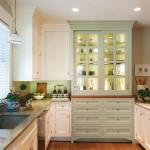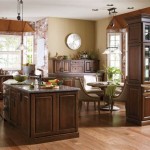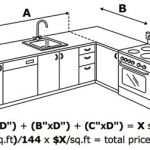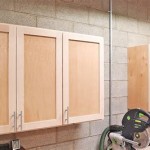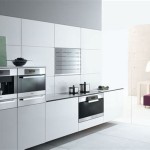Paint or Stain Kitchen Cabinets: Essential Considerations for a Perfect Finish
Remodeling your kitchen can involve a range of updates, including refreshing the look of your cabinets. Whether you choose to paint or stain them, it's important to consider several essential aspects to ensure a professional and long-lasting result.
1. Cabinet Material
The material of your cabinets will influence the type of finish you can achieve. Solid wood cabinets can be painted or stained, while laminate or veneer cabinets are typically only suitable for painting. If your cabinets are made of a composite material, it's crucial to consult a professional to determine the best finishing method.
2. Existing Finish
If your cabinets have an existing finish, it may be necessary to remove it before painting or staining. Lacquered cabinets, for example, require sanding to create a smooth surface for the new finish to adhere to. A professional can assess the existing finish and recommend the appropriate preparation steps.
3. Color Choice
When choosing a color for your cabinets, consider the overall style of your kitchen. Dark stains or bold paint colors can create a dramatic statement, while light and neutral tones can provide a more classic and timeless look. It's recommended to test paint or stain samples on a small area of the cabinet before committing to the entire project.
4. Paint or Stain Type
There are different types of paint and stain available that are specifically designed for kitchen cabinets. Alkyd-based paints are durable and easy to clean, while water-based paints are less toxic and have lower VOCs (volatile organic compounds). Oil-based stains penetrate deeply into the wood, creating a rich and protective finish, while water-based stains are easier to apply and clean up.
5. Preparation and Application
Proper preparation is key to a successful paint or stain job. This includes removing all hardware, sanding the cabinets to remove any imperfections, and cleaning the surface thoroughly. When applying paint or stain, use even strokes and follow the manufacturer's instructions carefully. Allow ample time for each coat to dry completely before applying the next.
6. Sealing and Protection
Once the paint or stain is dry, it's essential to seal it to protect the finish. A polyurethane finish can provide a durable and water-resistant surface. Polycrylic is another option that is less durable but easier to apply. Applying multiple coats of sealant will ensure the longevity of your cabinet finish.
7. Maintenance
Painted or stained cabinets require regular maintenance to keep them looking their best. Wipe down the cabinets with a damp cloth to remove dirt and debris. Avoid using harsh chemicals or abrasive scrubbers that could damage the finish. If the finish shows signs of wear or damage, touch-ups can be made using a matching paint or stain.
By carefully considering these essential aspects, you can achieve a professional and long-lasting paint or stain finish for your kitchen cabinets, transforming your space into a beautiful and functional focal point.

Painted Vs Stained Cabinets Which One To Choose Sir Paints A Lot

Painted Vs Stained Cabinets Which Fits Your Style Best

Painted Vs Stained Cabinets Jm Kitchen And Bath Design

Custom Kitchen Cabinets Painted Vs Stained Apico Kitchens

Painted Vs Stained Cabinets How To Compare When Use Both

Painted Cabinets Staining Kitchen

Painted Cabinets Staining Kitchen

Farmhouse Check In A What We Chose Edition Stained Wood Or Painted Cabinets Emily Henderson

Painted Vs Stained Kitchen Cabinets

Painted Wood Cabinets Vs Stained A Questionnaire Kylie M Interiors
Related Posts


